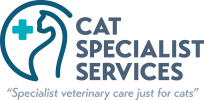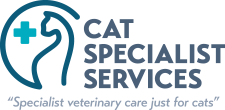During this period we recommend:
(a) Keep your cat in his/her carrier until you get home.
(b) Avoid long periods (more than a few minutes) of direct contact with your cat. It is safe to pick them up for short periods, but they should not sit on anyone’s lap for extended periods or sleep next to you on the bed.
(c) Avoid “face-to-face" contact or allowing the cat to lick or groom humans.
(d ) Ensure any handling is done in well ventilated areas (rooms with open windows or airflow)
(e ) Ensure your cat is not getting onto kitchen benches, or anywhere food is handled
(f ) Wash your hands after patting your cat.
(g) Avoid contact with urine, stools or vomit.
(h) Litter trays should be kept in an unoccupied area and lined with a waterproof litter tray liner. All litter tray waste should then be disposed of in a rubbish bag. Wear gloves when changing the litter and when cleaning any excrement outside the litter box (e.g. vomit).
(i) Pregnant women or women who are breastfeeding should not be allowed near the cat or the contaminated litter or bedding (within 1 metre) for 3 weeks.
(j) If your cat requires medical attention and you wish to take him/her back to your regular vet during this time, call them first and explain the situation. Make sure you bring these instructions to give to your veterinarian.
(k) Remember to keep your cat in his/her carrier at all times during transport.









